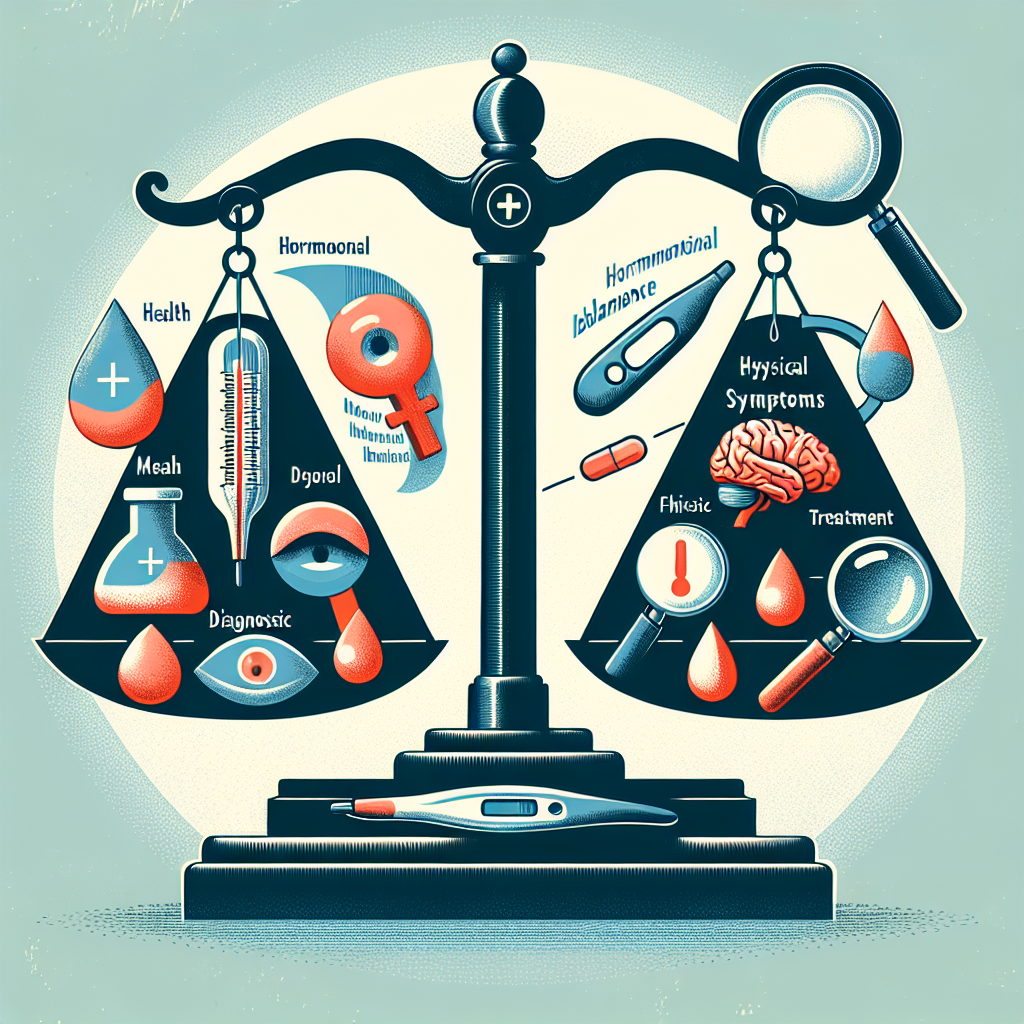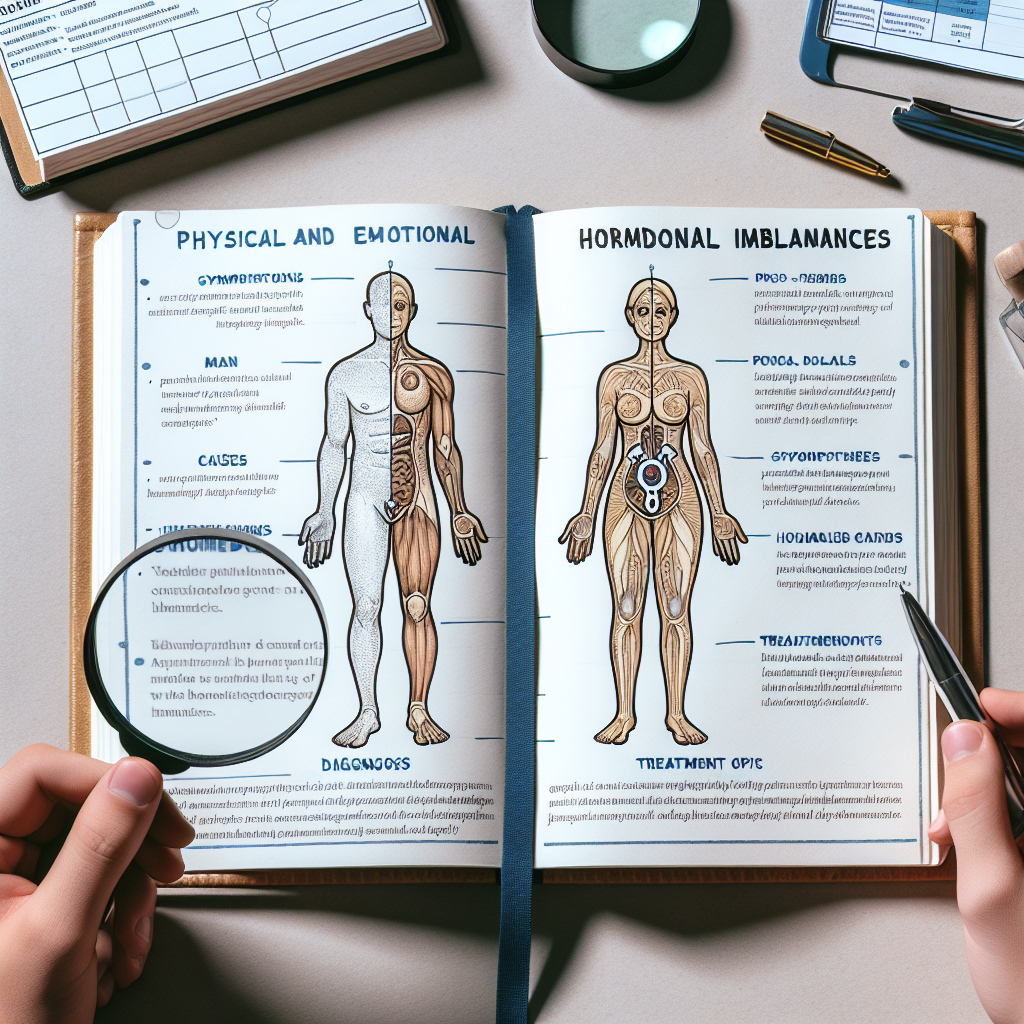Hormonal imbalances can often go unnoticed, yet they can have a significant impact on our overall well-being. From mood swings and fatigue to weight gain and skin issues, the signs of hormonal imbalances can manifest in numerous ways. If you’ve been feeling more down than usual, struggling to shed those extra pounds, or experiencing unexplained changes in your body, it might be time to investigate whether hormones are behind it all.
In this article, we’ll explore some of the common signs of hormonal imbalances and how they can affect your daily life. So let’s dive in and discover what clues your body might be giving you about its internal hormonal state.

1. Irregular menstrual cycle
Having an irregular menstrual cycle can be frustrating and disruptive to your daily life. If you find that your menstrual periods are too long, too short, or unpredictable, it may be a sign of a hormonal imbalance.
Menstrual irregularities can include missed periods, where your period doesn’t arrive when you expect it to, or heavy or light bleeding. These fluctuations can be caused by hormonal imbalances that affect the regularity of your menstrual cycle.
If you are experiencing any of these symptoms, it is important to consult with a healthcare professional to determine the underlying cause and receive appropriate treatment.
2. Mood swings
Hormonal imbalances can often manifest as changes in mood and emotional well-being. If you find yourself experiencing irritability and anger more frequently, it could be a sign that your hormones are out of balance. Anxiety and depression are also common symptoms of hormonal imbalances, as the fluctuation in hormone levels can impact brain chemistry and neurotransmitters.
Increased stress levels can also be a result of hormonal imbalances, as the hormonal fluctuations can affect the body’s stress response. If you notice significant changes in your mood or emotional state, it is important to seek support from a healthcare professional who can help address the underlying hormonal issues.
3. Weight changes
When hormones become imbalanced, it can impact your weight and metabolism. Unexplained weight gain can be a frustrating symptom of hormonal imbalances, even if you haven’t made any changes to your diet or exercise routine. Hormonal fluctuations can affect the body’s ability to regulate weight and can lead to difficulty losing weight.
Increased appetite or food cravings can also be a sign of hormonal imbalances, as certain hormones can impact hunger and satiety cues. If you are experiencing unexplained weight changes or changes in appetite, it is advisable to consult with a healthcare professional who can help you address the hormonal issues and develop a plan to manage your weight effectively.
4. Fatigue
Feeling tired and sluggish, lacking energy and motivation, and experiencing difficulty sleeping are common signs of hormonal imbalances. Hormones play a crucial role in regulating sleep patterns and energy levels, and when they are imbalanced, it can disrupt your sleep-wake cycle and leave you feeling fatigued.
If you find that you are consistently struggling with low energy levels, even after getting adequate sleep, it may be worth consulting with a healthcare professional to investigate if a hormonal imbalance could be the underlying cause. Addressing the hormonal issues may help improve your energy levels and overall well-being.

5. Hair and skin issues
Hormonal imbalances can also have noticeable effects on your hair and skin. Hair loss or thinning can be a distressing symptom of hormonal imbalances, as fluctuations in hormone levels can affect the hair growth cycle. Acne breakouts are another common sign of hormonal imbalances, particularly in women, as hormonal fluctuations can lead to increased oil production and inflammation in the skin.
Additionally, hormonal imbalances can lead to dry skin or excessive oiliness, depending on the specific hormonal issues at play. If you are experiencing significant changes in your hair or skin, it is advisable to consult with a healthcare professional who can help identify the root cause and provide appropriate treatment options.
6. Digestive problems
Hormonal imbalances can affect the digestive system, leading to various problems. Bloating and water retention are common symptoms, as hormonal fluctuations can cause the body to retain fluids and impact digestion. This can result in feelings of discomfort and a visible bloated appearance.
Hormonal imbalances can also lead to constipation or diarrhea, as the hormones that regulate bowel movements may become imbalanced. Stomach pain or cramps can also occur as a result of hormonal imbalances affecting the digestive system. If you are experiencing digestive issues, it is important to consult with a healthcare professional to determine if hormonal imbalances are contributing to your symptoms.

7. Changes in libido
Hormonal imbalances can have a significant impact on your sex drive and sexual well-being. Decreased sex drive, or a sudden loss of interest in sexual activity, can be a common symptom of hormonal imbalances. Pain or discomfort during intercourse can also occur due to changes in hormone levels affecting vaginal lubrication and tissue health.
Difficulty reaching orgasm is another potential symptom of hormonal imbalances, as hormone fluctuations can impact sexual pleasure and arousal. If you are experiencing changes in your libido or sexual function, it is important to discuss these concerns with a healthcare professional who can provide guidance and potential treatment options.
8. Hot flashes and night sweats
Hot flashes and night sweats are well-known symptoms of hormonal imbalances, particularly during perimenopause and menopause. A sudden intense sensation of heat, often accompanied by sweating, is a common experience for many women during this hormonal transition.
These hot flashes can be disruptive and uncomfortable, and they are caused by changes in estrogen levels. As hormonal imbalances can impact the body’s ability to regulate temperature, night sweats may also occur, leading to excessive sweating during sleep.
If you are experiencing frequent hot flashes or night sweats, it is advisable to consult with a healthcare professional who can provide guidance and potentially recommend treatments to alleviate these symptoms.

9. Headaches
Frequent or severe headaches can be a sign of hormonal imbalances. Hormones can impact brain chemistry and neurotransmitters, which can trigger headaches and migraines. Tension headaches, characterized by a dull ache or pressure around the head and neck, can also be a result of hormonal imbalances.
If you find yourself experiencing headaches on a regular basis, it is important to consult with a healthcare professional to determine the underlying cause and explore possible treatment options. Addressing the hormonal imbalances may help alleviate the frequency and severity of headaches.
10. Muscle and joint pain
Aches and pains in muscles and joints can be another symptom of hormonal imbalances. Hormones play a role in maintaining muscle strength and flexibility, and when imbalanced, they can lead to muscle weakness and stiffness. These symptoms can make everyday activities challenging and affect your overall mobility.
If you are experiencing muscle and joint pain, it is advisable to consult with a healthcare professional who can assess your hormonal status and provide appropriate treatment options, such as hormone replacement therapy or lifestyle modifications.
In conclusion, hormonal imbalances can manifest in various ways and impact various aspects of your life. If you are experiencing any of these signs and symptoms, it is important to seek support from a healthcare professional who can help identify the underlying hormonal imbalances and develop a personalized treatment plan.
Addressing hormonal imbalances can lead to improved overall well-being, better management of symptoms, and a better quality of life. Remember, you don’t have to suffer silently – reach out for the help and support you need.

Please take the time to check out our article on: How Does Stress Impact The Endocrine System?

